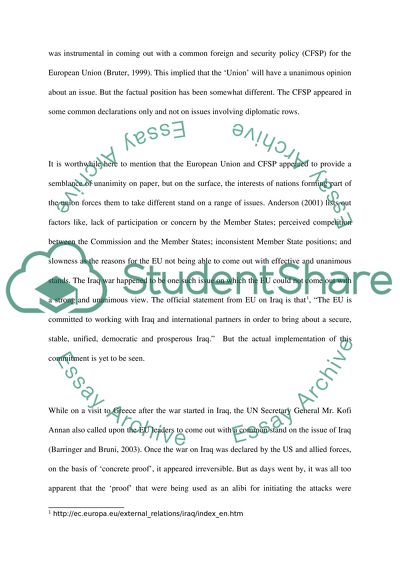Cite this document
(“The EU as a Diplomatic Actor in Recent Conflicts Essay”, n.d.)
Retrieved from https://studentshare.org/miscellaneous/1506058-the-eu-as-a-diplomatic-actor-in-recent-conflicts
Retrieved from https://studentshare.org/miscellaneous/1506058-the-eu-as-a-diplomatic-actor-in-recent-conflicts
(The EU As a Diplomatic Actor in Recent Conflicts Essay)
https://studentshare.org/miscellaneous/1506058-the-eu-as-a-diplomatic-actor-in-recent-conflicts.
https://studentshare.org/miscellaneous/1506058-the-eu-as-a-diplomatic-actor-in-recent-conflicts.
“The EU As a Diplomatic Actor in Recent Conflicts Essay”, n.d. https://studentshare.org/miscellaneous/1506058-the-eu-as-a-diplomatic-actor-in-recent-conflicts.


